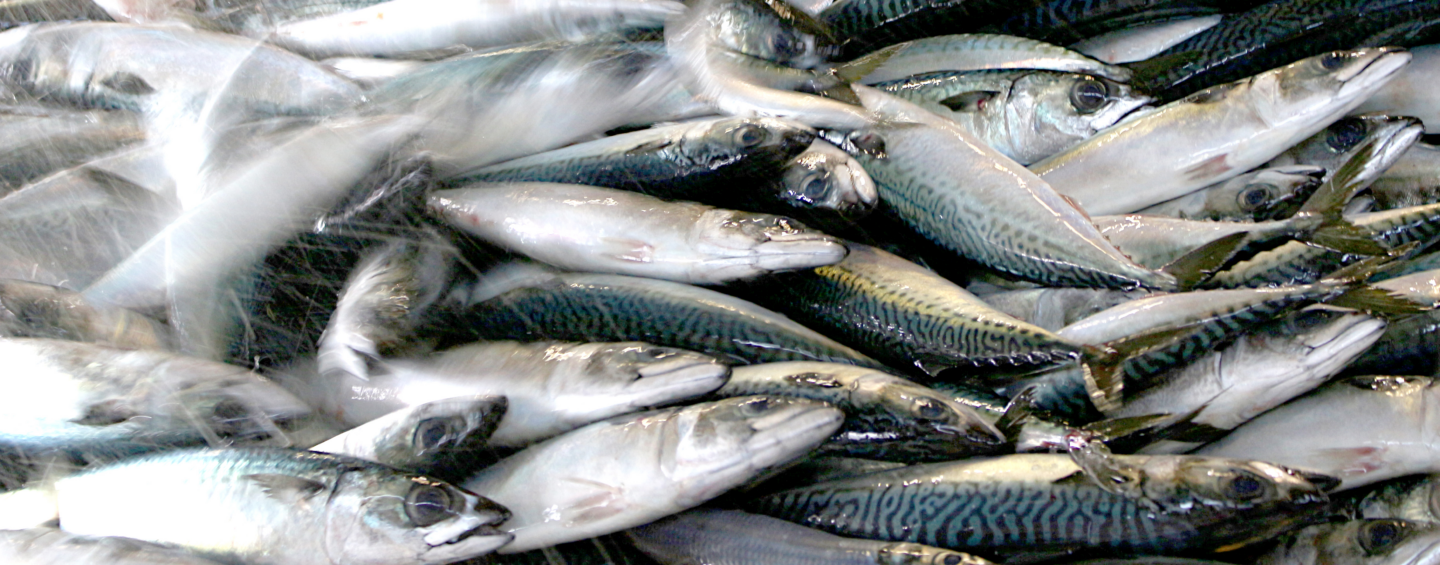Recently, SFP came to the conclusion that retailers across Europe need to lead an “intervention,” a new collaborative effort to address mackerel catch limits. This intervention is sorely needed, in the wake of a clear and visible failure on the part of mackerel fishermen working with government delegates.
Fishermen and delegates failed to agree on sensible catch limits in line with scientific advice. They failed, despite knowing the fishery would probably lose its Marine Stewardship Council (MSC) certificate as a result, and lose retailer customers across Europe that have commitments to only source MSC-certified fish. They failed, despite knowing that the lack of a sensible management plan places the entire future of the fishery and their industry at risk.
It’s easy to blame the fishermen and say they are being greedy, and to blame the regulators for caving to catcher demands. And they are guilty as charged. But that’s not the problem – every fisherman will and should look out for their own livelihoods, and regulators will and should listen to and represent their constituents.
The real problem is that so many different fishing fleets and countries are involved, and to succeed they all need to agree simultaneously to limit catches, in effect a “multilateral disarmament” agreement. Unfortunately, all it takes is one major fishing nation to refuse to go along for the multilateral negotiations to fail, and the fisheries “arms race” to continue.
This is nothing new. The benefits of getting the fisheries management right – saving the future of the fishery! – are obvious and collectively huge, and the fishing industry has known this for years. Left to their own devices, it’s not clear that catchers and government delegates can in fact ever reach a sensible agreement.
What’s needed is some way to discourage any individual fishing nation from refusing to cooperate. And that’s where we think a collective intervention by retailers and their suppliers can help.
A more activist intervention by retailers and their suppliers can encourage – and coerce where necessary – fleets and delegates to introduce effective fisheries management. First, retailers and suppliers need to ensure all fleets and countries involved in the fishery are at the negotiating table. Second, they need to ensure those fleets and delegates support a common-sense measure to introduce legal requirements that total catches, across all boats and countries, must not exceed a precautionary limit advised by stock assessment scientists from the International Council for the Exploration of the Seas.
Retailers and suppliers can achieve these goals by directly engaging their country’s delegates themselves, requesting their suppliers to support these efforts, and each voluntarily agreeing on their own to only do business with fleets and suppliers that are also calling for quotas to follow scientific advice.
SFP is calling on all retailers with sustainability commitments across Europe to align to implement this plan by launching an industry-financed and industry-led Fishery Improvement Project (FIP). Such FIPs, when following best practices and adequately supported by retailers and their suppliers, are helping fisheries improve around the world, many in much worse condition than Northeast Atlantic mackerel.
Stakeholders need to act on this now, as the future for Northeast Atlantic mackerel isn’t encouraging. Catches this season are likely to be three times higher than the scientific advice, and there’s a chance that without action we may see mackerel stocks also collapse, as Atlantic herring did in the 1970s, and Canadian Northern cod did in the 1990s.
The Canadian Northern cod fishery now has the best chance of recovery in nearly 30 years, because of a world-class FIP, led by local Canadian industry and managed by the Association of Seafood Producers (ASP) and the Atlantic Groundfish Council (AGC), which was launched and supported with help from UK retailers. The FIP has engaged with Canadian regulators to prevent the opening of the fishery too fast, and to implement additional scientific research worth around UK£7 million, to ensure the best possible scientific advice.
The ASP-AGC Canadian Northern cod FIP is exceptional, but it’s a good guess all involved would say that, if they could go back in time, they would have acted aggressively in the late 1980s to save their fishery. UK retailers need to act aggressively now to ensure a Northeast Atlantic mackerel FIP secures sound management today in this critical fishery, and prevent a collapse before it happens.

